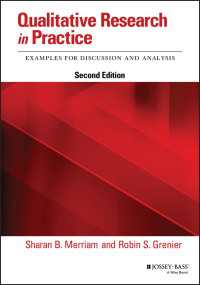Full Description
This book presents an in-depth, comparative analysis of the legal and social policy challenges arising from EU accession in Central and Eastern European countries, promoting a comparative understanding of the impacts on labour and social security law resulting from participation in the EU. Membership in the European Union has profoundly influenced the development of labour and social security law in the countries that joined it in 2004. Key areas such as anti-discrimination law, working time regulations, rules on posting workers, and work-life balance have undergone significant transformations. EU accession has also reshaped how social security regulations work, while fundamental aspects of employee-employer relations, including collective bargaining and occupational health and safety, have seen notable changes as well.
The book not only addresses the main characteristics and current dynamics of social law regulations in an ever-evolving Europe but also provides valuable insights into methods for addressing these challenges through improved labour regulations.
This book offers an essential resource for understanding the complexities and dynamics of labour and social security law in the context of EU enlargement, offering critical perspectives on both historical developments and future trends.
Contents
Part I. Impact of EU regulations on labour and social law of Eastern and Central European countries.- EU -Enlargement 2004: The Founding and the Accession Member States' View on EU Social Law.- The transformative journey of CEE countries to the EU.- Part II. Non-discrimination and equal treatment.- The Principle of Non-Discrimination in the Workplace: Judgments of the Court of Justice in Polish Cases.- The Evolution of Polish Antidiscrimination Laws in the Workplace: A Labor Law Perspective in the Context of European Union ('EU') Regulations.- Maternity and Parental Leave Management as a Tool for Work-Life Balance.- The Work-Life Balance in EU Law And the Quest for Substantive Gender Equality in Reconciling Work with Family Responsibilities.- Social rights of the elderly - Analysis from the viewpoint of EU social policy, the market and the Hungarian law.- Separate and Unequal: Persistent Segregation of Roma Children in Czech Republic and Eastern Europe.- Part III. Specific Challenges for Social Protection.- Cross-border healthcare law development: connecting points between Slovenian and EU law.- Legal regime of the social security certificate from the perspective of the CJEU case law.- The Digital Europe Programme and its impact on the Hungarian health care system, with special regard to the EESZT.- Social Europe, Free Movement and the Phenomenon of Reverse Social Dumping.- Long-term care - not a nightmare in the EU?.- Social Rights of Temporary Protected Persons in the EU: Current Challenges and Further Perspectives.- Employment of Persons with Disabilities: How Far Is Ukraine from European Equality Standards?.- Part IV Labour Law.- Lost in Space: CEE Countries Workforce and 20 Years of Enlargement.- The challenges of the implementation of EU labour law in CEE-countries, with specific regard to enforcement - the case of Hungary.- Balancing Legislation and Moral Capitalism: Enhancing Employee Access to Decision-Making.- From decentralizing to promoting collective bargaining. The development of industrial relations in Poland.- Selected issues challenging the national legislators in light of EP and Council Directive (EU) 2023/970.- Concluding remarks and prospects - what next in social law in the EU?.








